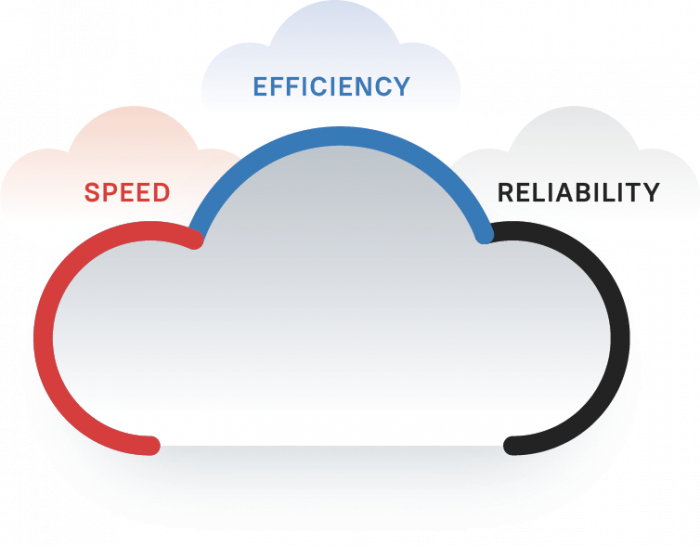If you consider investing in software with excellent cloud management capabilities, why not opt for Microsoft Azure. It offers both private and public cloud computing and management capabilities. It has proven itself a platform of choice for businesses, regardless of size, industry, or geography. A Statista report reveals that the Azure cloud platform encompasses more than 200 cloud services and products. It is also ever-evolving to support upcoming operating systems. Choosing cloud computing can help businesses in multiple ways:
- Enable access to data and information independent of physical location
- Deploy more robust data and information security measures
- Enable businesses to continue providing high-quality deliverables without compromising on deadlines or potential business
The Azure platform for cloud management has multiple offerings, including developer tools and data management. Here are some compelling reasons to choose Microsoft Azure.

#1. Infrastructure as a Service (IaaS) and Platform as a Service (PaaS)
Azure enables businesses to outsource infrastructure through IaaS while paying for the level of assistance that has been accessed (Pay for what you have used). On the other hand, PaaS enables businesses to build and operate web-based applications without purchasing or investing in the entire system. This helps save up on expenses without sacrificing the benefits of these capabilities. This translates into cost savings for a startup business while ensuring streamlined operations, enhanced quality of deliverables, and speedier turnaround times.
#2. Enhanced data security
Businesses can customize and manage levels of cloud data security in Microsoft Azure. This includes protection from Distributed Denial of Service (DDOS). DDOS protection is vital to businesses poised for the next level of growth and stand to suffer from any interruption. DDOS protection enables only permitted traffic to access the system, thus preventing crashes.
#3. Disaster recovery capabilities
Recovery and backup are critical for business continuity. It is essential to have access to reliable backup and storage facilities for businesses starting up or those poised to grow to the next level. Microsoft Azure cloud management enables the backup of files, applications, and folders. Disaster recovery is critical to business continuity. Disaster recovery is also a requisite for businesses looking to align with regulatory compliance, depending on the industry they serve in.
#4. Adaptability and integration capabilities
Azure cloud management facilitates businesses to toggle between any existing cloud and public cloud. As a platform, Azure enables hybrid connections, including VPN and content delivery networks, to enhance performance and productivity. Furthermore, Azure enables easier integration and operations for businesses that utilize Microsoft tools. This integration capability also extends to operating systems like Linux.
Next Steps
- Learn more about the benefits of professional cloud managed services, including Microsoft Azure, and how we can help boost business profitability for you.
- Email us at sales@analytix.com or call us on 781.503.9003 today.
- Follow our blog for industry trends and the latest updates.
- Engage with us on LinkedIn and Twitter.
